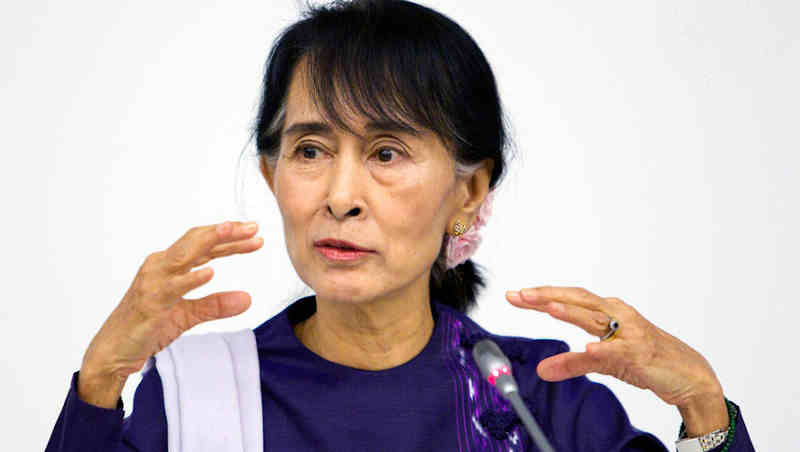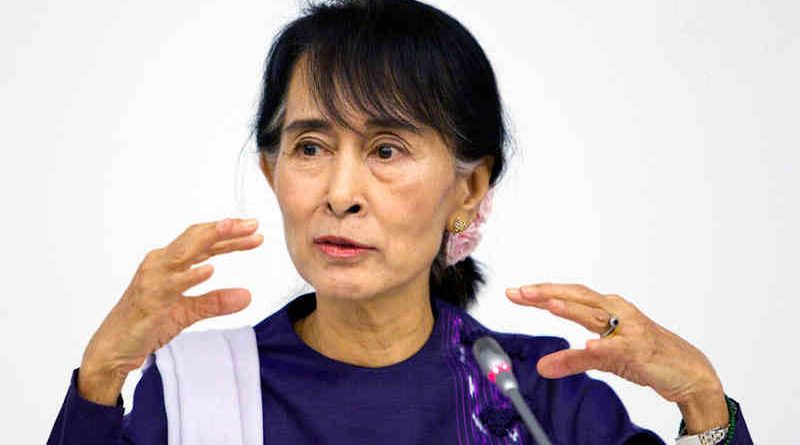Japan Asked to Cut Funding Sources to Cruel Myanmar Dictators

The countries which are condemning the coup should, in fact, send joint military forces inside Myanmar to defeat the authoritarian rulers and get the democracy restored. Shallow statements delivered remotely will not deter the Myanmar dictators.
By Rakesh Raman
A number of civil society organizations in Japan have given an urgent call for an investigation into the connection between Japan’s public funds and businesses linked to the Myanmar military. They have demanded that funding sources to the Myanmar military be severed.
As the police brutality backed by the military dictators continue in Myanmar, at least 18 peaceful protesters were killed on February 28. According to the UN Human Rights Office, 18 people died and over 30 wounded.
Deaths reportedly occurred as a result of live ammunition fired into crowds in Yangon, Dawei, Mandalay, Myeik, Bago and Pokokku. Tear gas was also reportedly used in various locations as well as flash-bang and stun grenades.
After the February 1 coup in Myanmar, a number of foreign states have decided to impose sanctions on the military rulers who remain undeterred. The United Kingdom (UK) and Canada have imposed sanctions on Myanmar’s military top brass for toppling the civilian government led by Nobel laureate Aung San Suu Kyi who – along with other leaders – was detained after the coup.
The detentions are said to be in response to the election fraud in the November election that Ms. Suu Kyi’s party National League for Democracy (NLD) won. The election commission of Myanmar has however rejected the military’s allegations of vote fraud.
Meanwhile, Japan, U.S., and Australia agree that democracy must be restored in Myanmar. After U.S. sanctions in February, the UK has decided to freeze assets and impose travel bans on three generals while Canada plans to sanction nine military officials.
As the imposition of sanctions is an ineffective mechanism to deal with state crimes, sanctions have not worked in many other cases such as Russia, Belarus, and Iran.
The countries which are condemning the coup should, in fact, send joint military forces inside Myanmar to defeat the authoritarian rulers and get the democracy restored. Shallow statements delivered remotely will not deter the Myanmar dictators.
Meanwhile, in the latest iteration of the #MilkTeaAlliance—the solidarity campaign that took shape last year between activists in Thailand, Hong Kong, and Taiwan—the protest guidelines of a project dubbed ‘The HK19 Manual’ have been partially translated into Burmese.
As a new trend of collaboration among international protesters, the manual has been widely shared among protesters in Myanmar, who are demonstrating against the February 1 military coup.
These Japanese organizations, which have a strong interest in the future of Myanmar’s democratization, urge the Japanese government not to provide any new aid to Myanmar using public funds, except for humanitarian purposes.
In a petition of March 4, they ask the government to suspend all Official Development Assistance (ODA) projects to Myanmar currently being implemented by the Japan International Cooperation Agency (JICA), except aid for humanitarian purposes.
The petition also demands an urgent investigation to know if companies with alleged links to the Myanmar military are involved in the projects, and whether the implementation of the projects has economically benefited the Myanmar military.
These civil society organizations have asked the Japanese government to suspend all Myanmar-related projects in which the Japan Bank for International Cooperation (JBIC) and the Japan Overseas Infrastructure Investment Corporation for Transport & Urban Development (JOIN) are currently financing or investing.
With the Myanmar military regime’s promise in 2011 to democratize the country, the Japanese government has been using national taxes to provide significant financial assistance to Myanmar. The government has also been promoting investment by Japanese companies, using public funds from the Fiscal Investment and Loan Program as a springboard.
The promise of democratization was broken, however, with the Myanmar military’s coup d’etat just before the inauguration of a government led by the National League for Democracy (NLD), which won the majority of votes in the 2020 elections following its win in 2015.
It has been one month since the Myanmar military’s coup d’etat on February 1. The Myanmar military claims that the results of the general elections held last November were fraudulent and therefore unacceptable.
After the coup, however, civil disobedience movements and general strikes broke out throughout the country and continue to this day, clearly demonstrating the popular will of the people of Myanmar.
In response, the Myanmar military has opened fire on unarmed civilians, resulting in many deaths. Since the day of the coup on February 1, the Japanese government has expressed “grave concern” and strongly condemned the civilian casualties in statements from the Minister of Foreign Affairs and the Press Secretary.
It has also joined the international community through the G7 foreign ministers’ statements condemning the military coup and the intimidation and repression of those who oppose it.
By Rakesh Raman, who is a national award-winning journalist and social activist. He is the founder of a humanitarian organization RMN Foundation which is working in diverse areas to help the disadvantaged and distressed people in the society.





